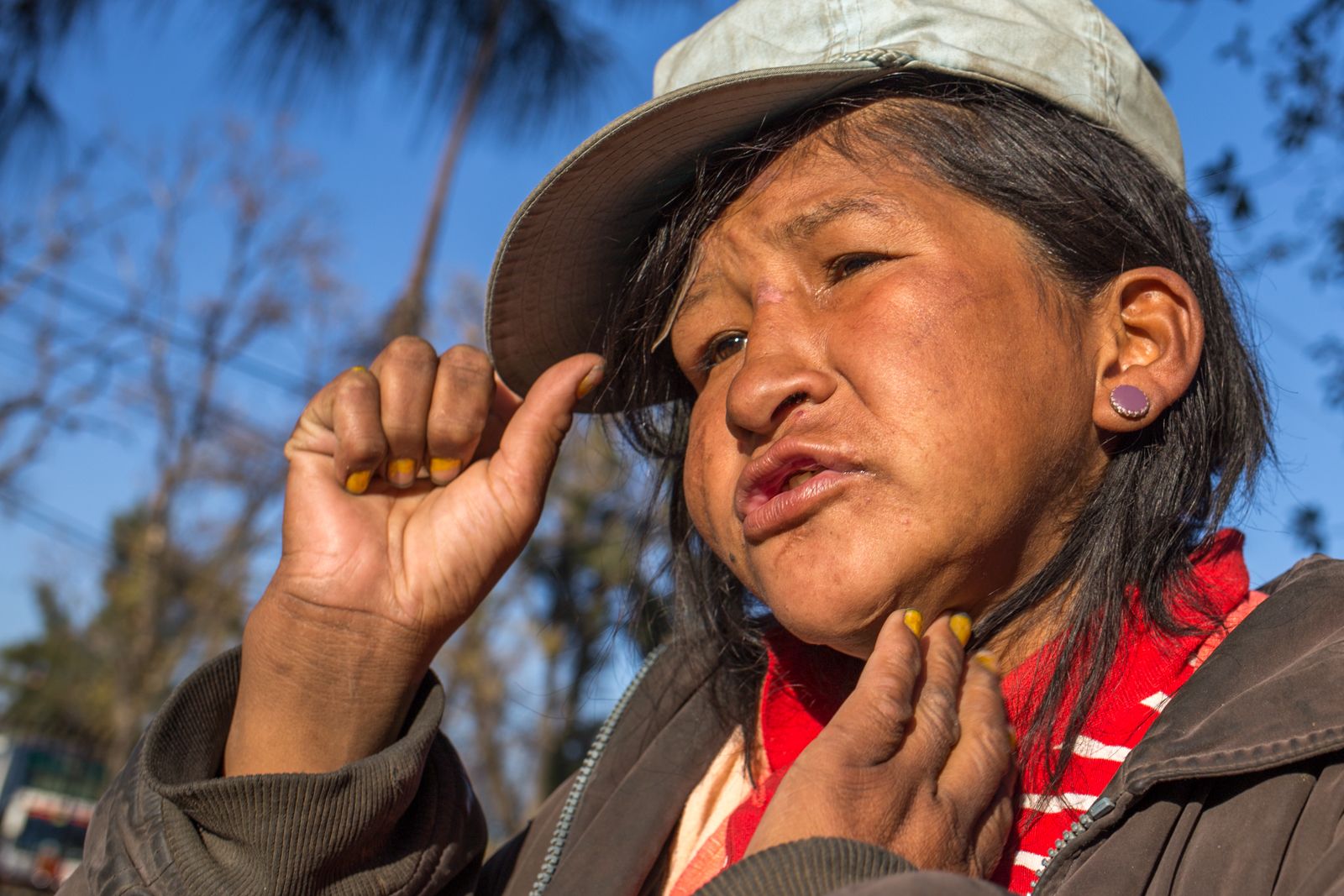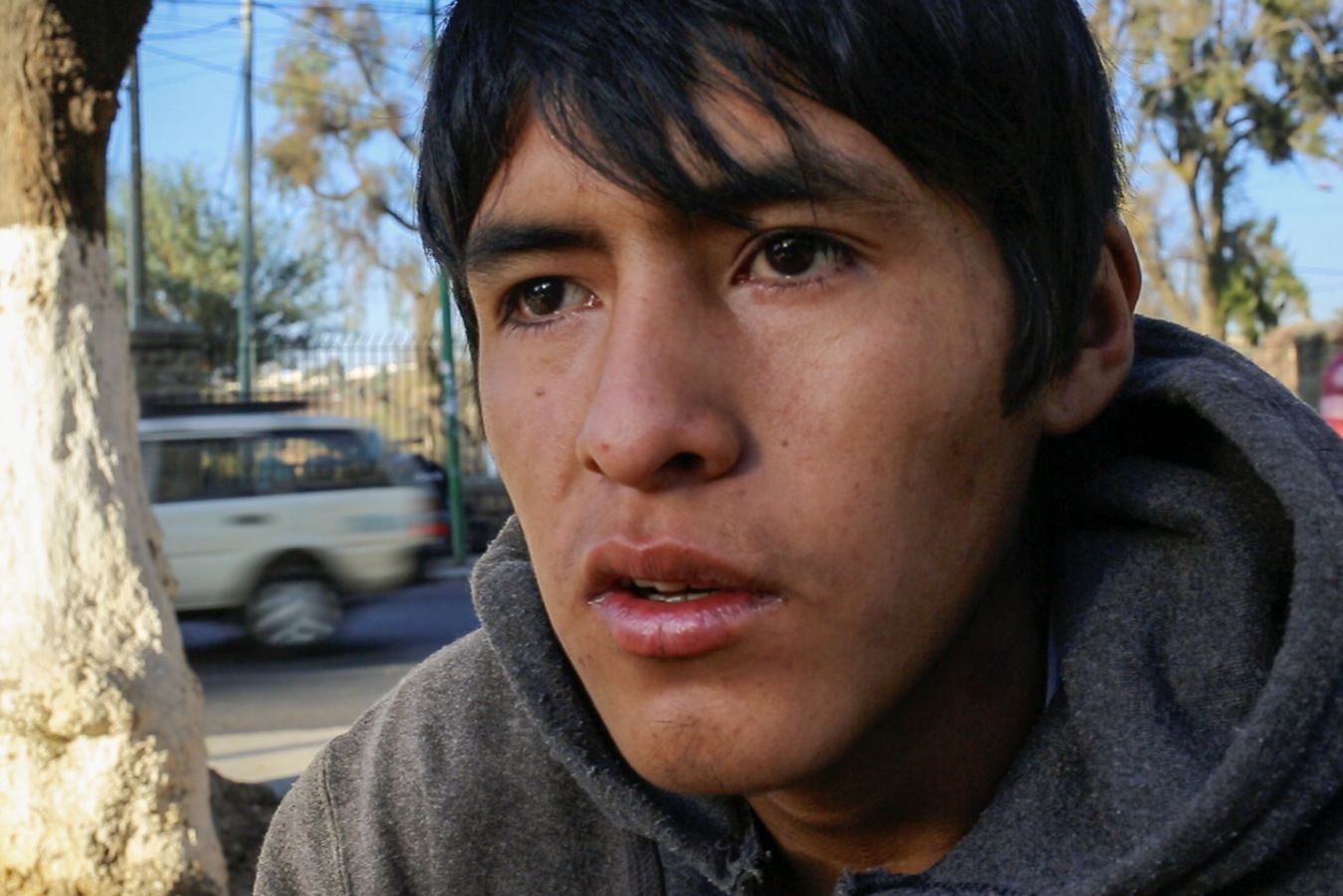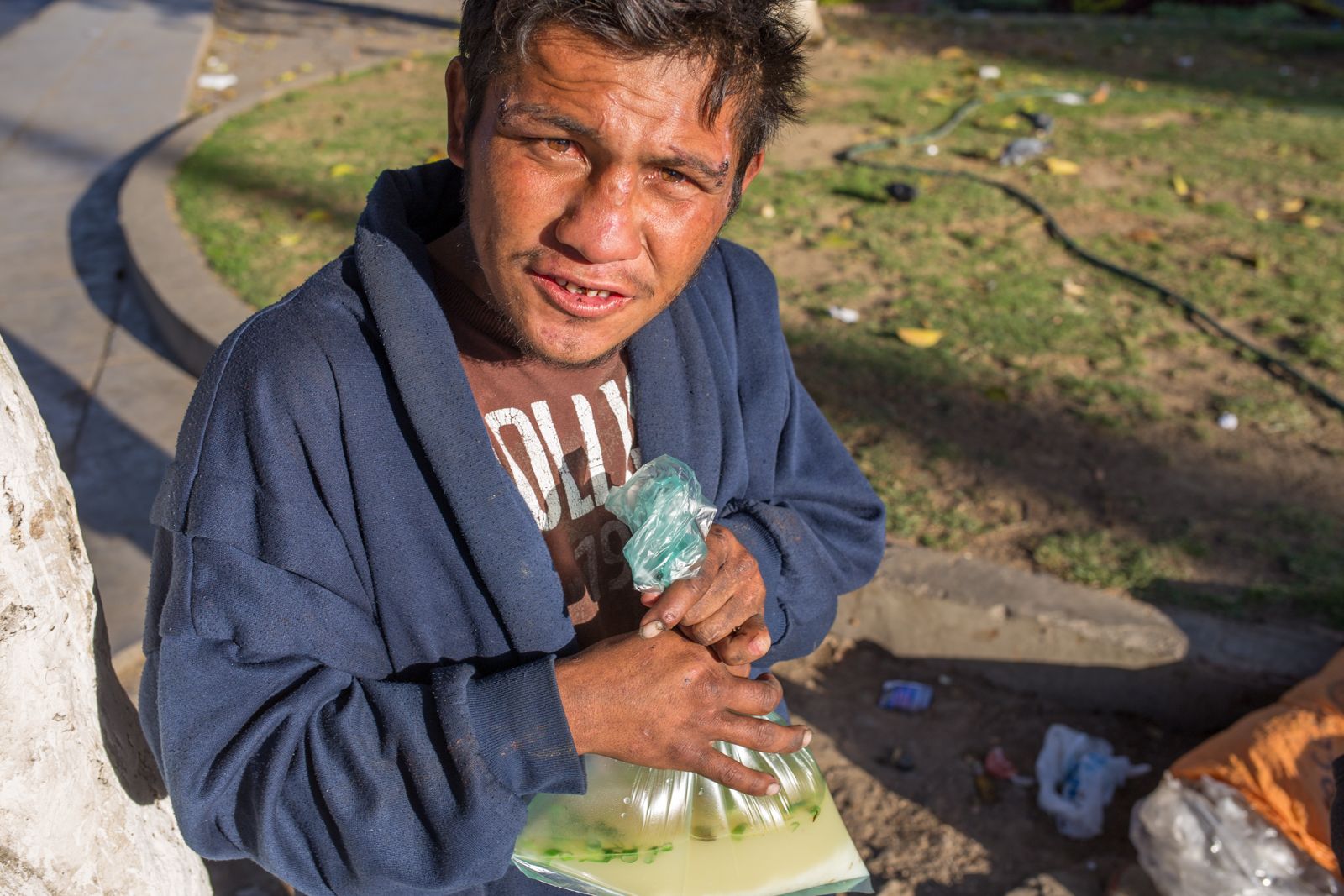I was in a taxi rushing to an interview when I passed a family of glue sniffers sprawled on the sidewalk. I couldn’t quite believe my eyes. A man was helping a small child inhale something from a bag. I went back later but couldn’t find the family.
I asked Jorge Fernandez about it. He’s a veteran journalist at La Opinion newspaper in Cochabamba and writes about crime, social issues and other topics.
"There are entire families inhaling glue and making their months-old babies inhale," Fernandez told me. "Obviously it does them a lot of harm. They give it to the child to inhale and people see it as normal. They don't do anything. They don't say anything and the authorities aren't doing much about it, either."
This was yet another layer in the story I was reporting about young people in peril. I had talked to Bolivians about child labor, violence and sexual abuse. Now I was learning about the plight of young people who were hooked on drugs and alcohol.
I went back to the street where I saw the family of glue sniffers. I found Jonathan Gutierrez on a grassy median. Gutierrez, 19, told me that "family problems" led him to drugs.
"I smoke cocaine, pot. I sniff glue, gasoline, everything," he said. "I get derailed. I get back on track, then I fall off again."
Gutierrez said when he's sober he works as a plumber to support his 1-year-old daughter. But then he steals to buy drugs. He wanted to make clear that he did honest work to provide for his family and only stole to buy drugs for himself.
"I rob just for me," he said.
People who sniff glue—or clefa—are called cleferos in Bolivia. Esmeralda Cespedes, 25, told me that she isn’t one of them. She’s not a clefero.
“I only drink,” she said.
“Why?” I asked.
“Because of the problems I have in my life,” she replied. “A lot of people bother me.”
Jose Luis stood nearby. He said he had been on the streets since age 13 and was now 22. He readily admitted that he inhales clefa.
He said it made him feel “bad,” but “I can’t change.”
Fernandez said he sees increasing numbers of cleferos and addicts on the streets.
"They're everywhere and they're growing in number,” he said.
In 2017, La Opinion newspaper reported that cleferos could be found in at least 20 spots throughout Cochabamba, which has a population of around 700,000. They’ve become a social problem, Fernandez said, "because many of them steal but the authorities don’t know what to do.” Even if there were enough rehabilitation centers—and there aren’t—many cleferos prefer life on the streets.
"They’re used to living without order, without rules,” Fernandez said.
Juan Gonzalo Armayo works to help glue sniffers and other at-risk youth in Cochabamba.
"Thank God, there are Christian institutions that are focused on working with these people," he said. "Society doesn't do absolutely anything to rehabilitate these people. Jesus showed me that those people who lived in the streets also deserved love. . . because they have feelings. They suffer. They cry. They are hungry.”


